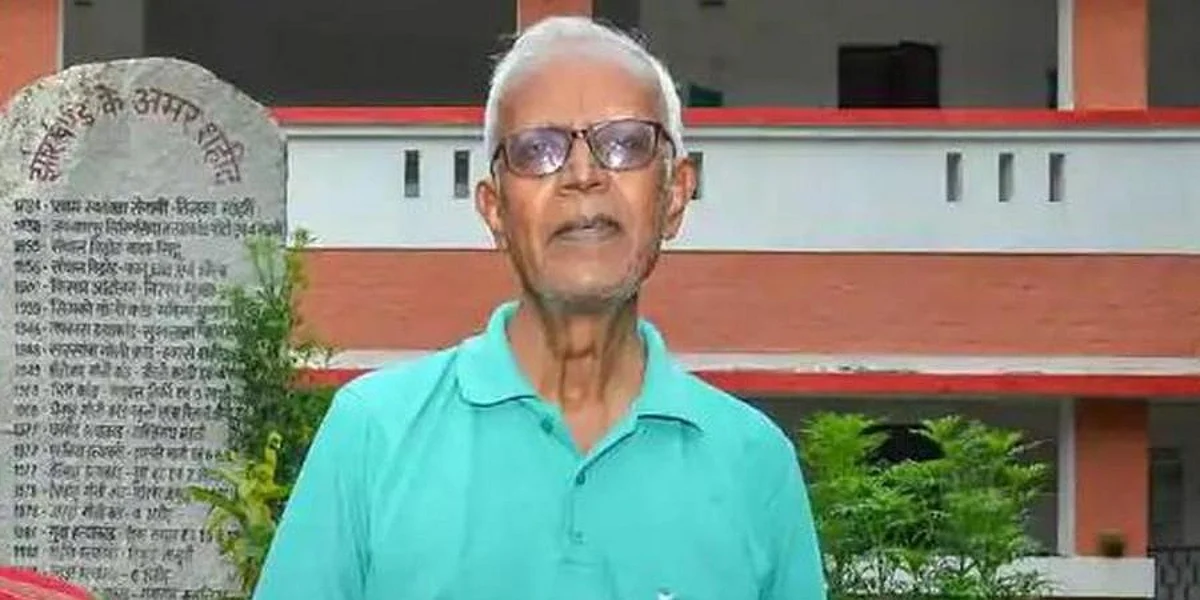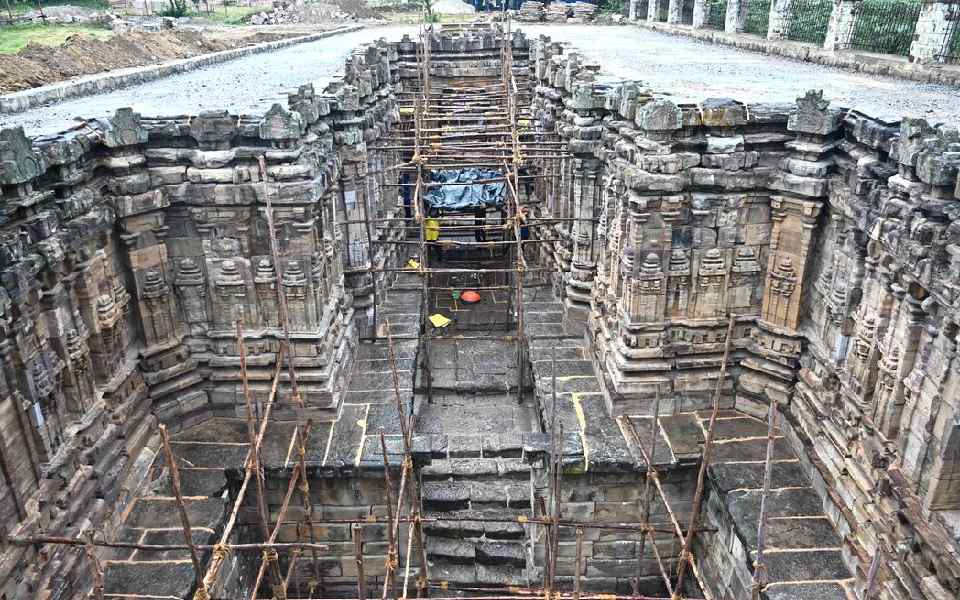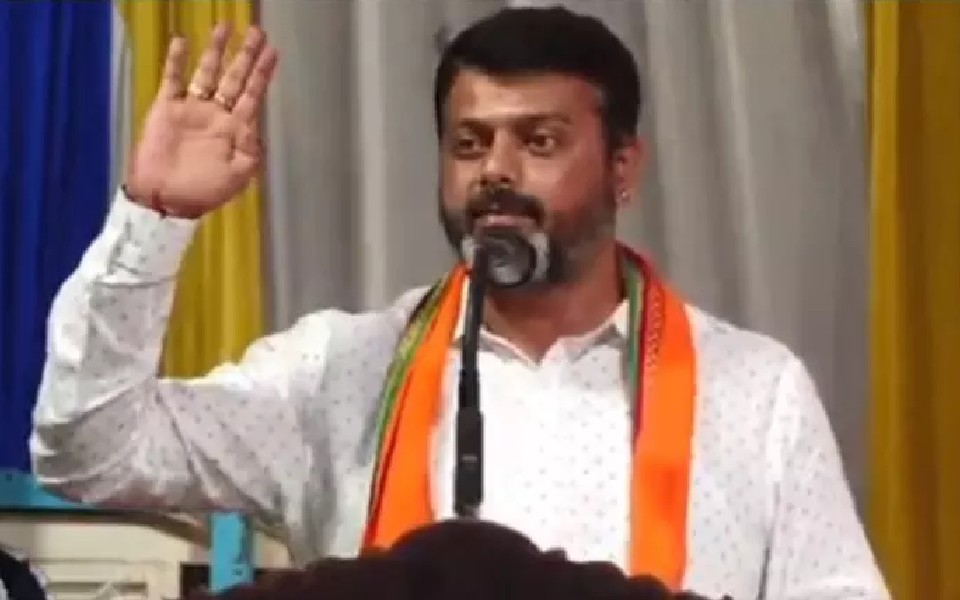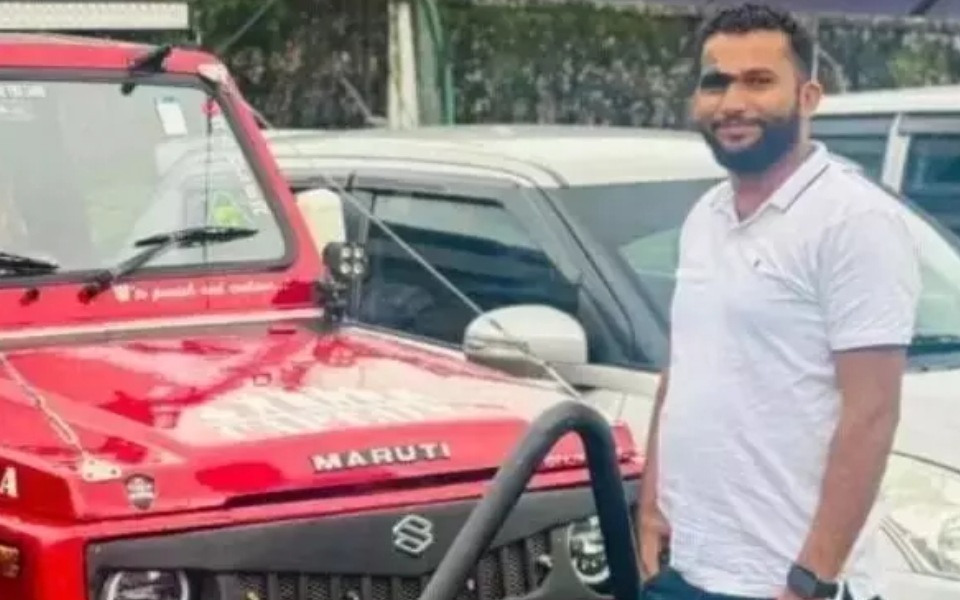New Delhi: On the fourth death anniversary of Father Stan Swamy, members of the Jesuit community, human rights defenders, and civil society groups came together in Delhi to commemorate the legacy of the late tribal rights activist and Jesuit priest, who died in judicial custody on July 5, 2021.
The memorial event was organised jointly by the Jesuits and the Catholic Associations of the Archdiocese of Delhi (CAAD). Speakers condemned the injustice surrounding Father Stan’s arrest and death, highlighting his lifelong commitment to Adivasi rights and the increasing criminalisation of dissent in India.
Senior Advocate Colin Gonsalves, founder of the Human Rights Law Network, criticised the use of the Unlawful Activities (Prevention) Act (UAPA) against peaceful activists. “It is irrational that judges who deny bail to ailing individuals like Father Stan, leading to their death, face no accountability,” he said. “Stan Swamy was the most soft-spoken and gentle ‘terrorist’ India has ever produced.”
Prominent sociologist Prof. Nandini Sundar reiterated the dangers faced by those who question state power. She recalled Father Stan’s advocacy for Gram Sabha rights and his 2017 PIL in the Jharkhand High Court against mass incarceration of Adivasis and Dalits under false Maoist allegations. “Stan was targeted because he stood with the oppressed,” she said.
Father Cyril Anthony Samy SJ described Father Stan as “a living saint,” and accused the Indian state of causing his death. “He proclaimed the truth boldly and paid the price for standing with Adivasis and demanding justice. His death is a murder by the state,” he said.
Father Stan was arrested on October 8, 2020, by the National Investigation Agency (NIA) under UAPA in the Bhima Koregaon case. Despite suffering from Parkinson’s disease and other serious illnesses, he was denied bail multiple times. His request for basic medical necessities, like a straw and sipper, was also initially denied, sparking national outrage. He died of cardiac arrest after contracting COVID-19 in custody, while his bail plea was still pending.
The United Nations Working Group on Arbitrary Detention later declared his arrest “arbitrary” and his death “utterly preventable,” holding the Indian state responsible.
To mark his martyrdom, members of the Bhima Koregaon-16 group (BK-16), including Anand Teltumbde, Hany Babu, Gautam Navlakha, and Sudha Bharadwaj, observed a hunger strike both inside and outside jail on July 5. A statement issued by the group was read aloud at the event, denouncing the state's repression of dissenting voices.
“The powers that be feared Stan, because he was fearless,” the statement read. “He united people’s movements against the destruction of jal, jungle, zameen in Adivasi areas. In return, the state used surveillance, fabricated charges, and incarceration to silence him.”
The statement also condemned the broader trend of targeting activists from the anti-CAA-NRC movement, members of the Moolnivasi Bachao Andolan, and Muslim individuals and organisations under the guise of national security.
Prof. Sundar also drew parallels between India's domestic repression and its international alliances, particularly with Israel. She highlighted the use of Israeli weapons, originally tested on Palestinians, against India’s own minorities, and criticised the export of arms linked to Adani to Israel, contributing to the ongoing war in Gaza.
Speakers concluded that remembering Father Stan is not only an act of mourning, but a renewed commitment to resistance. “His life was a beacon of hope for democratic values. His death is a reminder of the cost of speaking truth to power,” they said.
Let the Truth be known. If you read VB and like VB, please be a VB Supporter and Help us deliver the Truth to one and all.
Gadag: A centuries-old stepwell from the Kalyani Chalukya period is discovered into public in Sudi, a remote village in Karnataka’s Gadag district. The Nagakunda Pushkarani, dating to the 10th-11th century CE, is undergoing extensive restoration under the Department of Archaeology, Museums and Heritage’s ‘Adopt a Monument’ scheme.
The stepwell was focal point of community life and craftsmanship under the reign of Akkadevi, sister of Chalukya king Jayasimha II. It shows the dynasty’s mastery of architecture and water management. Its interior walls are carved with the precision of temple façades, setting it apart from most surviving stepwells in southern India, linking it stylistically to examples in Gujarat and Rajasthan.
After centuries of neglect left its sculptures weathered and its waters dry, the site is now being revived by the Deccan Heritage Foundation India in partnership with Heritage Matters, the Gandipet Welfare Society and the Water Literacy Foundation according to a report published by The HIndu. Work includes structural repairs, removal of invasive vegetation, dredging, stone resetting and landscaping, alongside the restoration of an adjacent mantapa with a large Ganesha idol.
Heritage architect B. Sarath Chandra noted, the project is as much about functionality as aesthetics, with water recharge efforts already underway. Funded by Gandipet Welfare Society founder Rajashree Pinnamenni, the restoration is slated for completion by late 2025, followed by a second phase linking the stepwell to the Jodu Kalasadagudi temple through landscaped pathways.
The report mentions that officials say the revival of Nagakunda Pushkarani could not only reintroduce Sudi’s Chalukya heritage to a wider audience but also serve as a model for conserving other lesser-known monuments across Karnataka.





